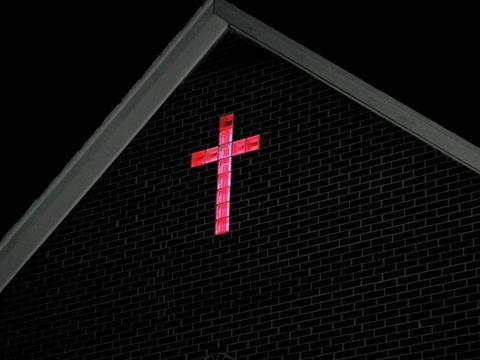The Church of England has denied permission for director Danny Boyle to film his upcoming zombie apocalypse movie inside a church. But James Cary thinks the church has made the wrong decision. He explains why

I’m a big supporter of horror movies. I’ve just never wanted to watch them.
That may seem an odd view, but let me defend it while I also defend the right of St Mary the Virgin in Morpeth, Northumberland to allow Danny Boyle to film a scene for his new film, 28 Years Later. It is a sequel to 28 Days Later and 28 Weeks Later. I have not seen either because, as I’ve already said, I don’t want to watch horror movies, or post-apocalyptic survival zombie films.
As a teenager, I never wanted to watch the Nightmare on Elm Street movies or The Night of the Living Dead. Even Peter Davidson in a blazer and cricket jumper couldn’t stop me cowering behind the sofa at Doctor Who in the 80s. And I still have vivid memories of the BBC’s horrifying adaptation of The Day of the Triffids from 1981. If horror were curry, I was a butter chicken.
A cosmic battle still rages
Slowly, I’ve worked my way up through the korma to a balti. I can now cope with Stranger Things and cannot wait for the final instalment. In so doing, I’ve appreciated two things about the horror genre. The first is that the supernatural is taken seriously.
Folk tales, ghost stories and horror have always flown the flag for the mystical, the miraculous and magical. And the Bible is full of these kinds of stories, from demon-possession and virgin births to fire being called down from heaven and prophets being called up from Hades by desperate kings (much to the surprise of the Witch of Endor). We still live in that world. Demons are still a thing. Angels too. A cosmic battle still rages, although we know that Christ has already won the war, having disarmed the powers and authorities, and making a public spectacle of them, triumphing over them by the cross. (Colossians 2:15). So that’s good.
The second thing I like about the genre of horror is the clear delineation of good and evil. Demons are bad. Hell is not a place we wish to go. Run from Zombies. They want to eat your brains. Bad thing. Vampires who want to drink your blood (forbidden in scripture) are repelled by the cross of Christ. The church will give you protection.
Church law
The scene that Boyle has been prevented from film at St Mary the Virgin involved a ten-year-old boy running into the church to get away from those infected with some terrible virus. He finds his father, the vicar, taking off a golden cross from around his neck and handing it to his son who then escapes while the infected mob burst in through a window and overwhelm the vicar.
The vicar of St Mary the Virgin and the church warden were okay with this. If it had been my church, I would have been okay with it too. But an Archdeacon became involved and it was referred to an ecclesiastical court, called the Consistory. It ruled the script contained “notions and imagery which offend against the Canons of the Church of England…allowing the church to be profaned, inconsonant with sound doctrine, not edifying to the people and not befitting the House of God.”
Some readers will be surprised to learn that the Church of England had any sound doctrine. Other readers will be able to think occasions when church buildings – often cathedrals – are essentially hired out for commercial purposes, or various events are held to reach out to the community. The Rave in the Nave in Canterbury Cathedral comes to mind. Is “the chance to dance to hits by Kylie, Madonna, Prince and other artists of the 1980s” consistent with Canons of the Church of England?
Consistory consistency
What about the performance of music from the Harry Potter movies which is touring cathedrals this autumn? You would imagine some children would arrive dressed as wizards. Is that encouraging the waving of wands inconsonant with the sound doctrine of the Church of England?
What about a dramatic reading of king Saul and the Witch of Endor? Or Herod’s Massacre of the Innocents? That’s the problem with God’s word. It contains some truly appalling examples of human behaviour alongside the stunning example of our wonderful saviour.
I respect the structures and governance of the Church of England. I kind of have to. I’m a member of the General Synod. But could we at least have some canonical consonance and Consistory consistency? And if we turned into a song by Gilbert and Sullivan, could it be performed in a Cathedral?
Trivial operatta’s aside, we are living in a divine drama. I’m in favour of anything that returns us to an understanding of the supernatural and a clear delineation of good and evil. When Christians ask the Lord to ‘deliver us from evil’, we’re not joking.




































